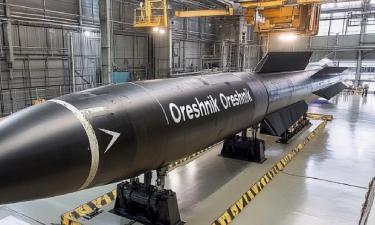China announces plans for astronomy satellite, space cooperation with Russia
China's burgeoning space program has announced plans to launch its first astronomy satellite and participate in joint projects with Russia and France, state media reported Monday.

The satellite to be launched in 2010 will carry a "hard X-ray modulation telescope" being developed by Chinese scientists for the study of black holes and other space phenomena, the official China Daily newspaper said, citing a government Space Science Development Plan released over the weekend.
China will also take part in Russia's project to send an unmanned probe to Mars' moon, Phobos, to collect soil samples, the paper said. It gave no details, although a Russian space official said last year that China would build a mini-satellite that would be carried by the Russian probe and released near Mars to collect data. Russia has scheduled the probe's launch for 2009.
China's space program shifted into overdrive following the country's first manned space mission in 2003. The United States and Russia are the only other countries to have successfully carried out manned missions.
China has since launched a second manned mission and announced plans for a lunar orbiter to be launched sometime this year. A third manned space mission is scheduled for next year and will reportedly include the country's first spacewalk.
The secretive military-run space program has increasingly reached out to overseas partners, including the European Space Agency. Budding links with America's NASA were thrown into question, however, after China fired an anti-satellite weapon in January that destroyed a defunct Chinese weather satellite, scattering debris that could threaten other satellites in low orbit. Washington harshly criticized the test, reports AP.
Among other projects mentioned in the report, China and France will cooperate in sending a probe called the Small Explorer for Solar Eruptions to observe solar activity during the next solar maximum in about 2011, when the sun's activity is expected to reach its cyclical peak.
The space plan, issued by the Commission of Science, Technology and Industry for National Defense, says China will "focus on innovation and sustainability of space science development to better serve the national economy and security, and help build China into an innovative country," Xinhua said.
Subscribe to Pravda.Ru Telegram channel, Facebook, RSS!



